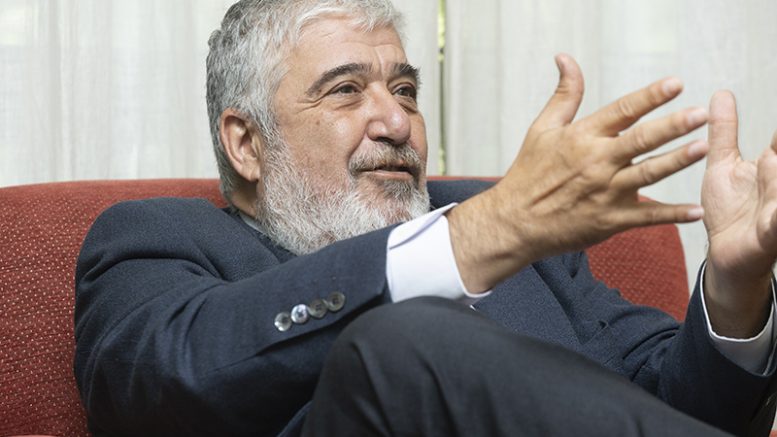Fernando Gónzález Urbaneja interviews José Juan Ruiz, president of the Real Instituto Elcano and director of Redeia, in Consejeros, who states that “The intellectual prestige of pessimism is one of the characteristic features of Western civilisation. But, to give an example: in terms of CO2 emissions, everything may be in chaos, people’s perception may be that we have done nothing, but the European reduction in emissions is 32% compared to a global increase of 16%. And this is one of the important parts of institutions like this – the Elcano Royal Institute – to document the debates, because geopolitics has made a hostile takeover bid for economics…
Q- And it has won.
A- Well, winning a battle is not winning the war and the “market watchers” will come back at some point. If you tell people that nothing works and that everything is a power struggle, you are showing a world that is a zero-sum game dominated by fear.
Q- Now that we are talking about the world and fear, and given that just a few days ago you were at the Bilderberg Club meetings, which some newspapers call nothing less than “shadow world government”, would you mind telling us what you did, what you talked about?
A- I was invited but I think I can say what one of the attendees said years ago: “I came to these meetings thinking I was going to meet the Illuminati and I found a debate led by the Dutch”. I mean, what happens there is very interesting, but 150 people do not represent the world. It is, however, a good instrument to talk about the state of the transatlantic relationship between Europeans and Americans. The club was created in ’54, as the memory of World War II was fading, because some people thought it should be avoided, especially in a European world that was deeply anti-American and was forgetting what the Americans had done for us.
Q- Let’s talk for a moment about the other Americas, those of the South. Are we in another lost decade?
A- The singularity of Latin America with respect to the emerging countries is not that it has grown less, it is that in Latin America there is democracy and in the other countries there is none and there are no plans for there to be any. This is something that people forget. The real uniqueness of Latin America is that it has tried to achieve development having first made the political evolution and having democratic systems, with all its drawbacks, of course. Starting from an income inequality like the one they have.
Q- It was hoped that there would be a greater process of internationalisation, and a greater role for Mercosur, which does not seem to be progressing…
A- Mercosur is perhaps an idea that people have fallen in love with and are keeping because everyone is too embarrassed to liquidate it, but trying to set up a free trade zone in the most protectionist area of the world in agriculture and with the most powerful country in agricultural exports… Maybe we’ve got it wrong. But that does not mean that integration is not happening. Mexico, at the moment, may not be integrated with Latin America but it is perfectly integrated with its much more powerful neighbour to the North. And if you look at how the minimum wage has risen in the last five presidential terms, you see that the increases were 12%, 8%… and with López Obrador they are 280%. Foreign direct investment as a proportion of GDP: 1.5%, 3%… Now, 6%, 7% of GDP. And the Americans say it clearly, they prefer the Chinese to come to Mexico and set up their factories there than to do it from outside, because they are not going to let them in. I believe that the strategic value of Latin America is there. Are they going to channel it this time? I hope so.





